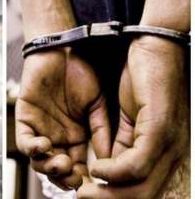NIGERIA stands at a crossroads, following the killing spree that has become all too common.
According to figures released by the Nigerian Human Rights Commission (NHRC), in July, more people were killed in the first half of this year than in the entirety of 2024, a mind-boggling reality for a country that is relatively at peace. The figures expose the fragility of the country’s security architecture. According to the figures, at least 2,266 people were killed in the first half of 2025, compared to 1,083 in the first half of 2024 and 2,194 for the full year.
The statistics released by the Nigerian Bureau of Statistics (NBS) in December 2024 paint a grim picture of the state of the nation’s security.
The figures released show that no fewer than 614,937 Nigerians were killed and 2,235,954 others kidnapped across the country between May 2023 and April 2024. The NBS disclosed this in its report titled ‘The Crime Experienced and Security Perception Survey (CESPS) 2024’, and based on the surveys conducted between May 2023 and April 2024. The report disclosed that 2.2 million Nigerians were kidnapped across the country while N2.2 trillion was paid as ransom, an average amount of N2.7 million per incident.
These figures are not just statistics; these are fathers, mothers, children, and breadwinners, whose lives have been cruelly cut short, leaving behind a trail of broken families and ruined futures.
The extent of the crisis is terrifying as thousands of Nigerians are either murdered or kidnapped on a daily basis. Farmers are waylaid on their way to their farms, women and children are abducted from homes, and entire villages live under constant fear of raids by bandits. Kidnapping has fast become one of the fastest-growing industries in the country, with ransoms amounting to figures greater than the budget of some ministries in the country. The poor usually bear the brunt, as their modest earnings are forcefully taken in exchange for loved ones, while those who cannot pay often face death. This steady erosion of security has left citizens resorting to self-help, diverting scarce income to private security, vigilantes, and neighbourhood guards instead of food, education, or healthcare.
While we applaud the marginal wins of the government, suffice it to say that it has been inadequate. Security forces remain overstretched, poorly equipped, and in some cases demoralised. Even they have become frequent targets of attack, with soldiers ambushed in some parts of the country. The promise of improved welfare and better equipment for security personnel has not generated meaningful results. Public trust in the police continues to nosedive, as officers focus their energy on profiling and harassing innocent youths while criminals and armed groups wreak havoc brazenly. Policing should not be about bullying but about service, trust, and community partnership. Until trust is re-established, citizens will continue to see the security forces as part of the problem instead of the solution.
Another issue is the porous state of Nigeria’s borders. The steady inflow of small arms from neighbouring countries has turned gangs of criminals into well-armed militias capable of overwhelming communities and even challenging security forces. Without tighter border control, equipped with modern surveillance and stronger regional cooperation, the cycle of bloodshed will persist. The unchecked circulation of weapons has made it more difficult and every raid by militia groups and other non-state actors more catastrophic.
If Nigeria is to turn the tide, urgent reforms are required. Policing must be trained away from harassment and toward genuine protection of lives and property, intelligence gathering and cooperation with local communities. The idea of state and community policing must be fully embraced and implemented. Local vigilante groups should be integrated into official security operations.
Also, funding for the police must translate into modern tools, effective logistics, and improved welfare to boost morale and performance. Borders must be tightened to stem the inflow of arms that fuels these atrocities, while law enforcement agencies must redirect their focus to the real predators of society rather than the innocent youths they too often harass.
The government must act decisively, not with mere promises but with bold, sustained action to restore security. Nigerians deserve a country where life is not cheapened by violence, where families do not live in perpetual fear, and where the future is not stolen in bursts of gunfire.
The killings must stop. And they must stop now.
an Human


